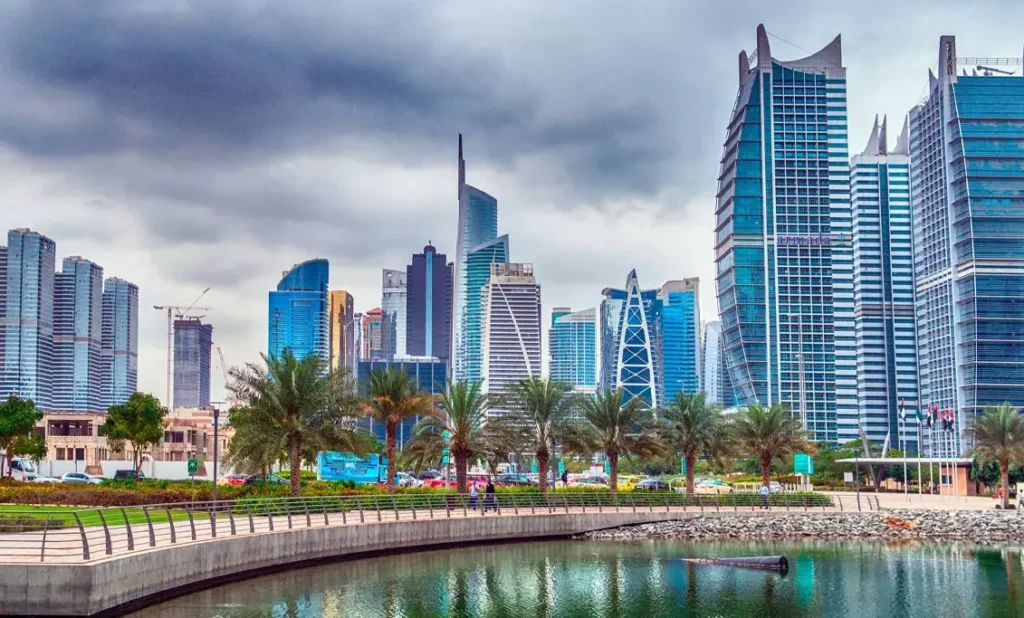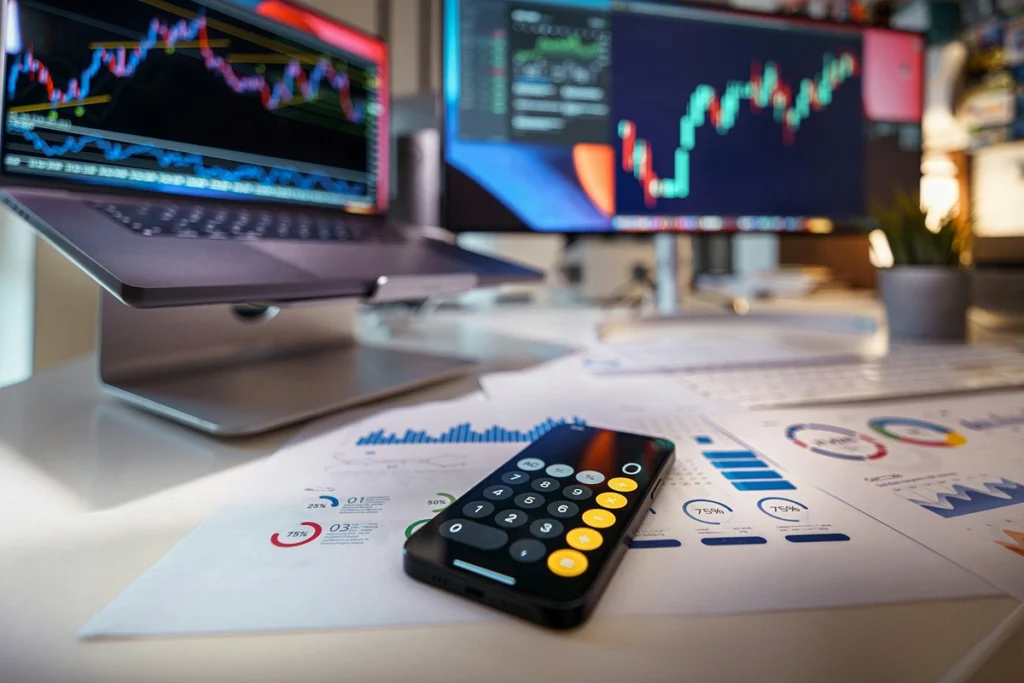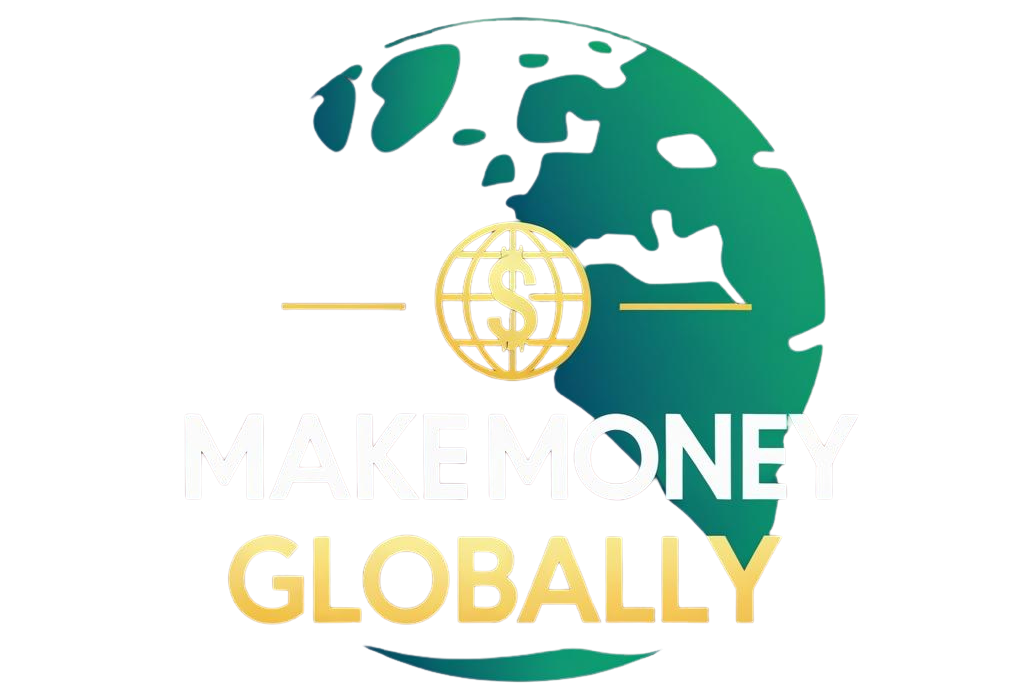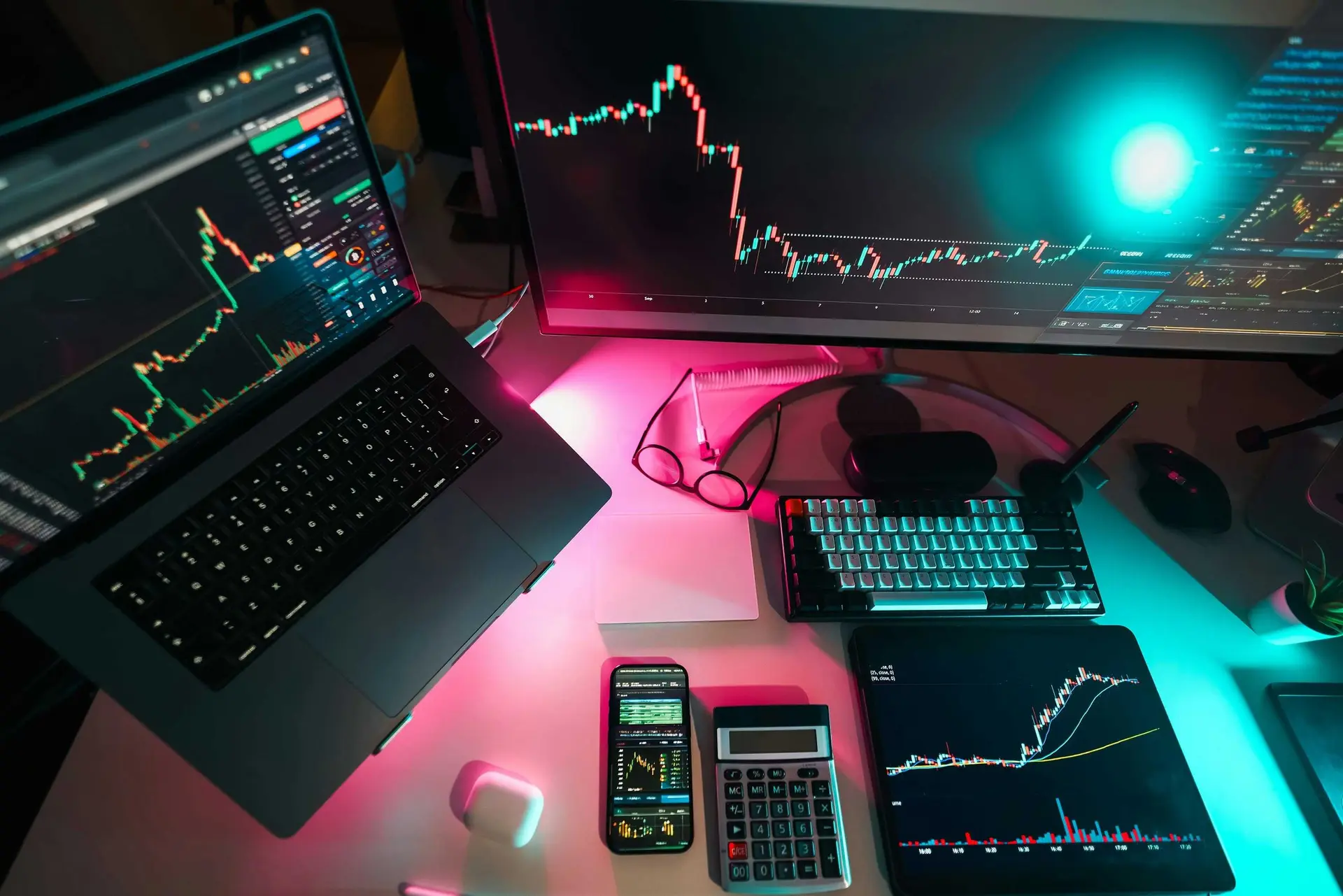Introduction
For decades, the international foreign exchange market has attracted traders from around the world with its deep liquidity, 24-hour operation, and potential for significant profits. In 2025, a remarkable trend has gained momentum — a wave of forex traders relocating to Dubai.
The reasons behind this shift are not limited to taxes or glamour. Traders are choosing Dubai because it offers something few places in the world can match: a combination of zero personal income tax, modern infrastructure, political stability, financial transparency, and a global business ecosystem.
This article explores the factors fueling this migration, how traders are making the move, what challenges they face, and why Dubai is fast becoming the epicenter of modern forex trading.
The Global Forex Market and the Search for Freedom
The forex market is the largest financial marketplace in the world, with daily volumes exceeding six trillion dollars. Traders from all backgrounds — individual investors, hedge funds, and institutions — engage in this high-stakes environment to capitalize on currency movements, interest rates, and global economics.
Yet beyond skill and strategy, success in forex often depends on the trader’s environment. High taxes, banking restrictions, and regulatory burdens in traditional financial hubs can limit profitability and freedom.
Relocating to a jurisdiction with supportive policies and modern infrastructure can make an enormous difference. Dubai has emerged as one of those rare places where financial opportunity meets operational freedom, providing a serious edge to professional traders.
1. Tax Efficiency and Wealth Retention
The first and most obvious reason forex traders are moving to Dubai in 2025 is taxation — or rather, the lack of it. The UAE does not levy personal income tax or capital gains tax on individual earnings. For high-earning traders, this difference can translate into a six-figure annual saving.
In countries like the United States or the United Kingdom, forex gains are taxed as income or capital gains. In Dubai, those same profits are retained in full. The ability to reinvest and compound capital without a tax burden allows traders to grow faster and take more calculated risks.
For those operating through a company structure, Dubai’s free zones offer additional benefits such as 100 percent foreign ownership, full profit repatriation, and low corporate tax rates (9 percent on profits above certain thresholds). Combined with the stability of the UAE dirham, which is pegged to the US dollar, traders gain both fiscal and currency stability.
In short, Dubai offers one of the most trader-friendly fiscal environments on earth.
2. Strategic Location Between Global Markets
Location matters in forex. Dubai’s position between the East and West gives traders a unique time zone advantage. At GMT+4, it sits between the Asian and European trading sessions, allowing traders to catch overlapping market hours without pulling all-nighters.
This strategic location enables traders to monitor Asian market opens in the morning, European trends in the afternoon, and even some U.S. market activity in the evening. It’s an ideal setup for global market coverage from one base.
Dubai is also one of the most connected cities in the world. Its airport links traders to London, Singapore, New York, and major financial centers in less than a day. Whether you need to attend conferences, meet brokers, or network with institutions, the logistical advantage is unparalleled.
The city’s high-speed internet infrastructure and world-class financial hubs, such as the Dubai International Financial Centre (DIFC), ensure seamless connectivity for traders who rely on low-latency execution.
3. Regulated Yet Supportive Financial Environment
Many traders misunderstand Dubai’s regulatory framework. Far from being a “wild west” of finance, the UAE maintains clear regulations for financial services through authorities such as the Dubai Financial Services Authority (DFSA) and the Securities and Commodities Authority (SCA).
This gives professional traders confidence that they are operating in a jurisdiction that balances innovation with oversight. Traders can work with reputable, licensed brokers who meet strict operational and compliance standards.
The result is an ecosystem that is transparent, credible, and globally respected. For serious traders, that balance between freedom and regulation is essential.
4. Lifestyle, Safety, and Networking Opportunities
Life in Dubai goes far beyond the trading desk. The city offers a level of comfort, safety, and cosmopolitan energy that appeals to globally minded professionals.
Forex traders often work long and unpredictable hours, making environment and lifestyle essential. Dubai offers stability, excellent healthcare, safe neighborhoods, modern coworking spaces, and recreational options for every taste — from beach clubs to golf resorts.
Perhaps more importantly, Dubai has become a magnet for entrepreneurs, investors, and digital professionals. Networking events, finance summits, and trading meetups happen regularly, connecting traders with potential partners and clients. The cross-pollination between finance, tech, and entrepreneurship creates a dynamic environment that few other cities can rival.
Add to that year-round sunshine, safety, and modern housing — and it is easy to see why traders view Dubai not just as a business move, but a lifestyle upgrade.
5. Residency and Visa Options for Traders
One of Dubai’s most forward-thinking initiatives has been its flexible residency system. In the past, relocation to a foreign country meant bureaucratic hurdles and uncertainty. Today, the UAE offers multiple visa pathways for professionals, investors, and independent traders.
Forex traders can qualify for long-term residency through the Golden Visa, property investment, or business setup in one of the city’s free zones. Freelance and specialist permits are also available for independent professionals.
Once residency is secured, traders can open bank accounts, lease property, and access health insurance — all within a streamlined system. The process is faster and more transparent than in many other major economies, making relocation relatively straightforward.
Dubai’s leadership understands that attracting high-earning, self-employed professionals benefits the economy. The visa reforms of recent years reflect that strategy perfectly.

6. Ease of Business Setup
Setting up a trading entity or professional license in Dubai is remarkably efficient. Free zones such as DIFC, DMCC, and Dubai Silicon Oasis provide structures that allow full foreign ownership and operational freedom.
Registration processes are digital, paperwork is minimal, and most licenses are issued within a few weeks. Banking relationships, while requiring due diligence, are now easier to establish for verified traders with legitimate income sources.
The simplicity of doing business has turned Dubai into one of the top global destinations for startups and financial entrepreneurs. Many brokers, prop trading firms, and fintech companies have already established offices in the UAE, creating an entire ecosystem around trading and investment services.
For forex traders seeking to formalize their trading as a business, this streamlined setup is a significant draw.
7. Infrastructure Tailored for Trading
Dubai’s infrastructure ranks among the best in the world. High-speed internet, robust cybersecurity, reliable electricity, and easy access to premium office spaces make it a natural base for trading activity.
The city has also made significant investments in data centers and fintech innovation zones, providing traders and firms with low-latency connections to global exchanges. Coworking spaces like DIFC FinTech Hive and DMCC Crypto Centre cater specifically to financial professionals.
For traders using algorithmic or high-frequency strategies, this kind of infrastructure is crucial. Dubai provides the technological backbone necessary for efficient, high-volume trading operations.
8. A Hub for Global Finance and Innovation
Dubai’s financial vision goes beyond real estate or tourism. Over the past decade, the government has deliberately diversified into finance, blockchain, and digital assets.
The city hosts a growing number of forex brokers, investment firms, and blockchain projects. The DIFC alone has seen double-digit growth in financial company registrations year after year.
With the UAE introducing virtual asset regulations and embracing fintech innovation, Dubai has positioned itself as a global financial hub where traditional finance and modern technology converge.
For forex traders, this means access to a larger network of institutions, funding partners, and liquidity providers — all within the same city.
9. Community and Peer Networks
Relocation is about more than economics; it is about belonging. The forex community in Dubai is vibrant and growing. There are regular meetups, trading workshops, and events where traders share strategies, exchange ideas, and collaborate on technology solutions.
Dubai’s multicultural nature means traders can interact with peers from every major market — Europe, India, Africa, and Asia — all in one place. This diversity fuels innovation and builds connections that often lead to joint ventures or educational projects.
For newcomers, this community makes the transition smoother and provides valuable mentorship and social integration.
10. Legal Clarity and Transparency
One of the reasons traders trust Dubai is its commitment to clear, enforceable laws. Financial activities such as forex trading are legal and recognized under federal and free-zone frameworks, provided traders operate within licensed channels.
The government has also cracked down on fraudulent or unregulated schemes, increasing investor confidence. Licensed brokers must meet stringent capital and operational standards, which reduces counterparty risk.
This transparency ensures that traders can focus on their craft without worrying about the credibility of local institutions.
The Process of Relocating to Dubai
For those seriously considering relocation, the process is straightforward but requires planning.
- Define your trading model: Are you trading individually or through a firm? This determines whether you need a business license or personal residency.
- Secure residency: Apply for the Golden Visa, freelance permit, or investor visa.
- Select a jurisdiction: Choose between free zones such as DIFC, DMCC, or mainland depending on your business model.
- Open a bank account: This involves KYC checks and proof of income.
- Choose a regulated broker: Ensure the broker is licensed by recognized authorities.
- Settle housing and infrastructure: Dubai offers residential options from affordable apartments to luxury penthouses, depending on budget.
- Compliance and tax planning: Even though the UAE is tax-free for individuals, traders from certain countries must ensure compliance with their home tax laws.
Relocation can take between four and twelve weeks depending on the chosen visa route and documentation.

Recent Developments Boosting the Trend
Several developments in 2025 have accelerated the influx of traders into Dubai.
- Expansion of the DIFC: The financial center has introduced new licenses tailored for trading and investment firms.
- Free zone integration: Regulations have been harmonized across free zones, simplifying cross-zone operations.
- Tech growth: Fintech investment has surged, improving data connectivity and algorithmic trading infrastructure.
- Broker migration: Global brokers have expanded into Dubai to serve GCC clients, increasing competition and service quality.
- Rising wealth migration: As taxes and living costs increase in Western economies, high-income individuals view Dubai as a financial safe haven.
This combination of regulatory evolution and market opportunity makes 2025 a tipping point year.
Challenges and Realities
No relocation is without drawbacks. While Dubai offers enormous opportunity, traders must be mindful of several realities.
- Cost of living: Rent, schooling, and healthcare can be expensive compared to developing regions.
- Regulatory discipline: Traders must avoid unlicensed brokers and respect UAE’s financial laws.
- Banking scrutiny: Banks require proper documentation and proof of source of funds, which can take time.
- Lifestyle adjustment: The culture, climate, and pace of life differ from Western countries. Adapting requires flexibility.
- Home country obligations: Traders from countries that tax global income (like the US) must plan compliance carefully.
Nonetheless, for most professionals, the advantages far outweigh the limitations once they are established.
Case Study Examples
A London-based trader who moved to Dubai in 2022 reports saving more than $120,000 per year in taxes, funds that he now reinvests into algorithmic trading systems.
A former Singapore-based prop trader now running a boutique fund in Dubai credits the city’s time zone and low operational friction as key reasons his team increased trading volume by 40 percent.
These stories echo across the trading community: more autonomy, greater savings, and better work-life balance.
The Bigger Picture: Dubai as a Financial Future Hub
Dubai’s vision extends beyond hosting wealthy individuals. The government aims to position the city as a global capital for finance and innovation.
New fintech accelerators, digital asset frameworks, and educational initiatives are being launched to attract young talent and diversify the economy.
This means that traders relocating today are joining a financial ecosystem still in expansion mode — a place where both opportunity and influence are growing.
Dubai’s alignment with international standards, while maintaining its tax and regulatory competitiveness, ensures it remains attractive long term. For forex professionals seeking to build sustainable careers, it is a foundation for growth rather than a temporary tax escape.
Is Dubai Right for Every Trader?
Not necessarily. Beginners or casual traders may find the relocation cost unjustified. However, for profitable or professional traders generating consistent returns, the numbers make sense.
For example, a trader earning $300,000 annually could save over $100,000 in taxes by relocating, more than covering living costs while gaining better business infrastructure and lifestyle.
The decision ultimately depends on one’s trading volume, risk appetite, and lifestyle priorities. Dubai rewards those who treat trading as a business — disciplined, strategic, and scalable.

Future Outlook
The trend shows no signs of slowing. As more traders, brokers, and fintech firms migrate to Dubai, the ecosystem becomes stronger. Competition among brokers improves spreads, service quality, and access to institutional-grade tools.
Regulators continue refining frameworks for virtual assets and trading businesses, balancing innovation with consumer protection.
Dubai’s reputation as a tax-efficient, globally connected hub ensures it will remain a magnet for financial professionals well beyond 2025.
Conclusion
The surge of forex traders relocating to Dubai in 2025 is not a coincidence. It is the outcome of deliberate policy, infrastructure investment, and visionary governance.
Dubai offers what every trader seeks: stability, efficiency, global access, and freedom to grow wealth without unnecessary barriers. It combines a zero-tax regime with world-class connectivity, safety, and lifestyle — elements that make it one of the most desirable destinations for global traders today.
In an industry defined by volatility and uncertainty, Dubai stands out as a place of clarity and opportunity. For forex traders ready to take their business global, 2025 may well be the perfect time to make Dubai home.

